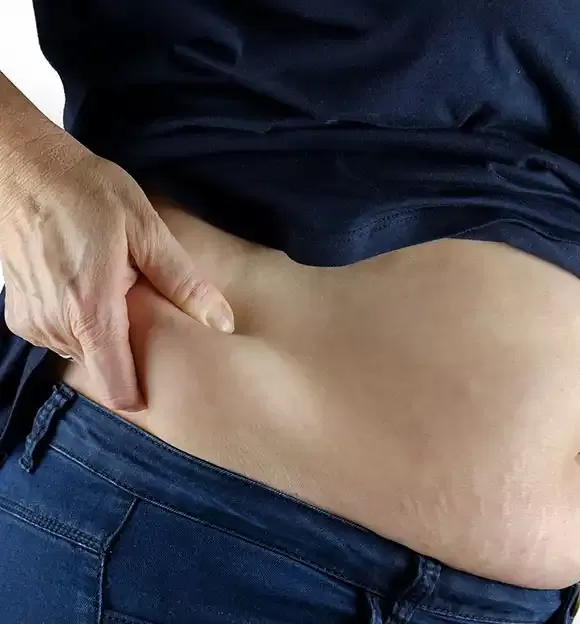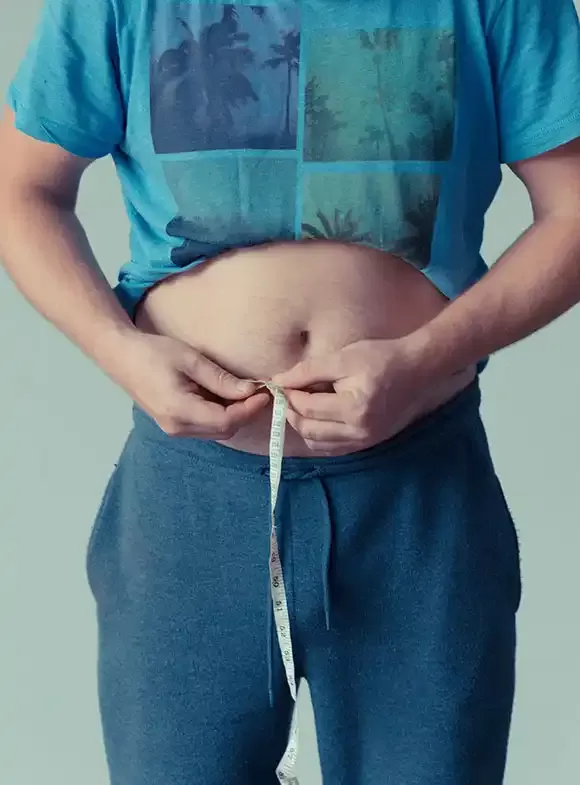Stop The Dad Bod & Middle Age Spread

Niall Marshall-Manifold, a Chiropractor at Wimbledon Clinic & Sports Injury Clinic, shares his 13 rules for conquering the midlife abdomen, accompanied by a 20-minute strength workout to try at home.
After spending 1/2 decades sculpting the physiques of the elite and managing body injuries of sportspeople for nearly 20 years, Niall Marshall-Manifold maintained his fitness effortlessly.
However, the arrival of his five-year-old son and three-year-old daughter altered his routine drastically. Marshall-Manifold, now 42, faced new challenges as his responsibilities shifted.
Despite his supreme fitness, the demands of fatherhood and a burgeoning health business took a toll on his physique, leading to a noticeable change in his waistline.
Adding to his challenges, his health business, Wimbledon Clinic, and COVID kept him deskbound more than usual. Consequently, he observed a slight thickening around his waist and increased pounds on the scale.
This shift is common among fathers, as highlighted by a study from Northwestern University Feinberg School of Medicine, which found that fathers, regardless of living arrangements, tend to be heavier than child-free men.
Marshall-Manifold emphasises that while becoming a father brings about hormonal changes and increased work demands, developing a "dad bod" is not inevitable. He advocates for minor changes to combat weight gain, which helps maintain a physique and boosts energy levels for quality time with children.
Here's how Marshall-Manifold manages family life, running a business, and keeping the dreaded dad bod at bay:
Stretch for 10 minutes daily after 40 to counteract decreased flexibility caused by hormonal and lifestyle changes. Do this by getting on floor mat: This also force you to practice getting up and down from floor which is linked to longevity.
- Reduce portion sizes and increase protein intake while being mindful of consuming processed foods, sugar, salt, and alcohol.
- Incorporate power naps, 'sleep-banking', to compensate for disrupted sleep patterns and prioritise sleep for hormone regulation and muscle health. Sleep when baby sleeps is my motto, try not to clean house or watch tv during naps periods. We often over eat when tired!
- Exercise regularly to maintain fitness levels, even when motivation is low. It doesn't need to be intensive on low-energy days.
- Schedule workouts when you traditionally have energy - the hormonal rhythm will be different for different individuals.
- Monitor weight regularly/ use scales, and take action at the slightest gain to prevent accumulation over time.
- Include compound exercises like squats and lunges to combat muscle loss. Now being in the ijury business I agree with this principle but dont start squats and lunges if you havn’t got personal trainer/ coach or very good skill history weith them, also ignore them if you have knee or ankle issues. Tiredness with any complex skill leads to injury, so use mirror to check form or use equipemnt in gym to keep form on-point, Utilise saunas/ hot baths regularly for joint health, stress relief, and improved immune function.
- Engage in aerobic low impact exercise such as cycling or brisk walking to enhance cardiovascular fitness.
- Remember your partner; facilitate each other to get your bodies back.
- Eat less omega 6, an inflammatory substance found in process grains
- Don't each carbs after 6 pm, and instead, each as many mushrooms and kale spinach as you like
- Pursue enjoyable activities like golf to relax and rejuvenate both body and mind.

Treatments with Niall Marshal-Manifold or his team at the Wimbledon Clinic - Chiropractic & Sports Injury Department can be booked on 02085403389, where he advocates body/ postural improvement through chiropractic and sports injury care solutions.